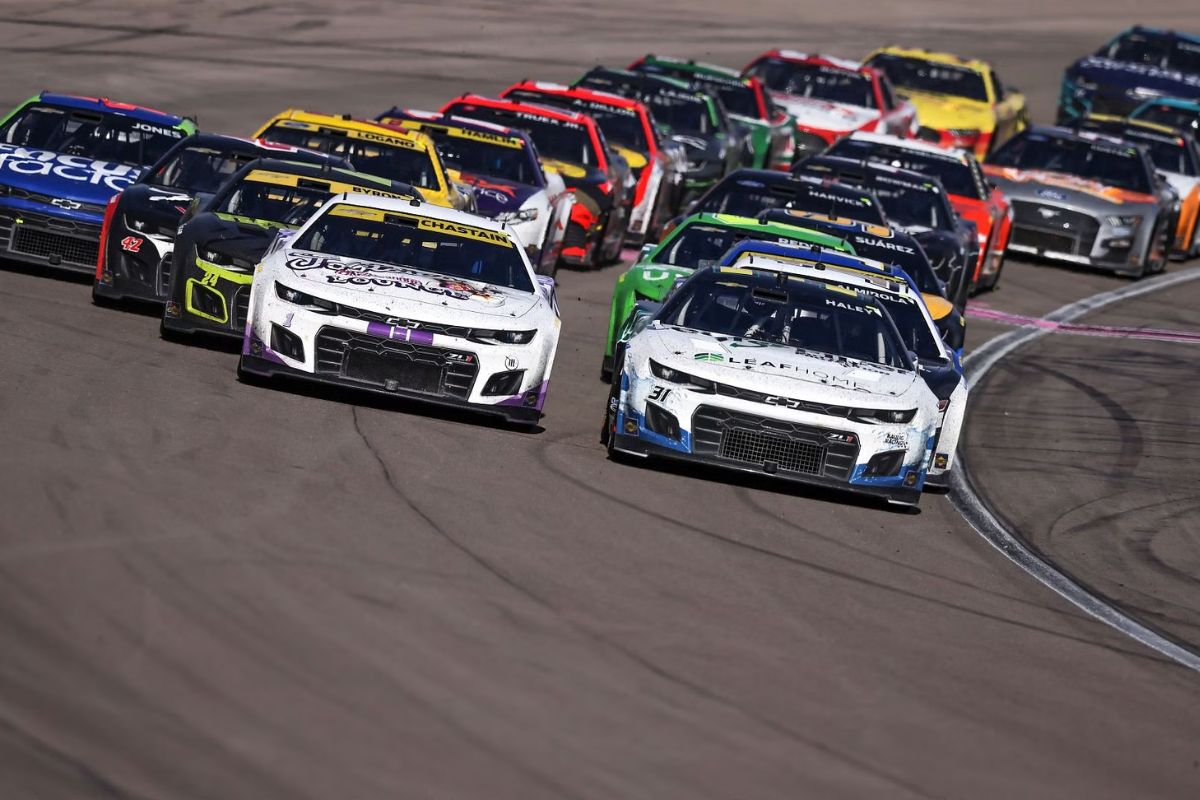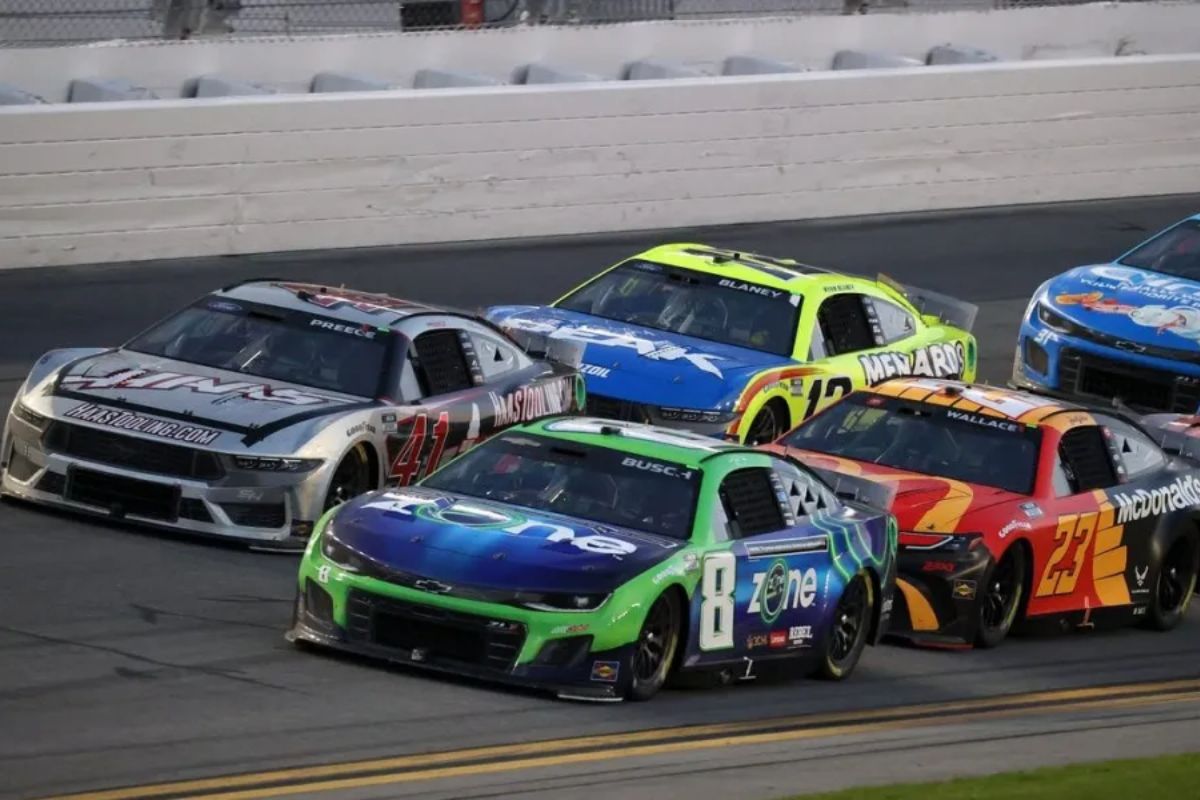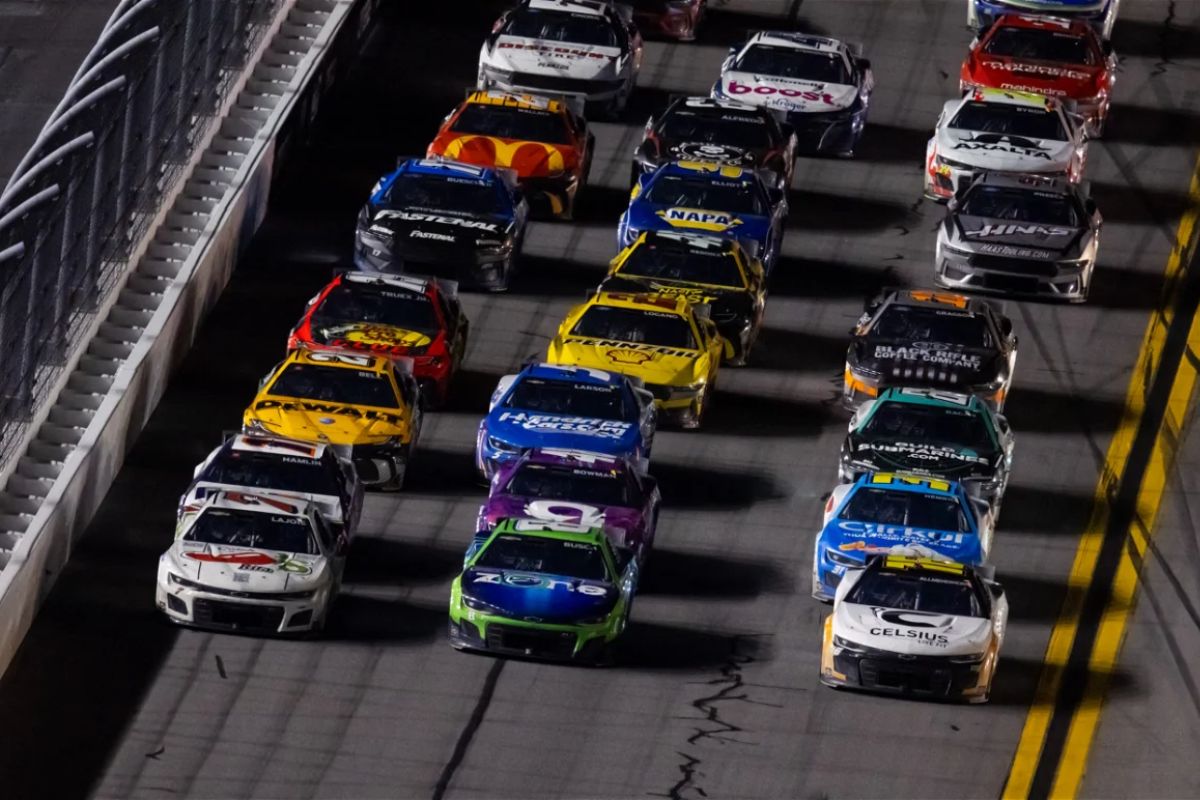Hyundai Threatens Honda’s NASCAR Entry: As Hyundai considers entering NASCAR, a potential rivalry with Honda looms, casting a shadow over Honda’s own nascent ambitions in the series. This development arrives at a crucial moment when NASCAR is exploring electrification, aligning with broader automotive industry trends. Hyundai’s expertise in hybrid technology could give it a competitive edge, challenging Honda’s strategic positioning and possibly altering the balance within NASCAR’s manufacturer ecosystem. The outcome of this rivalry could influence future technological integrations in the sport and reshape partnerships.
Key Takeaways
- Hyundai’s potential NASCAR entry could overshadow Honda by introducing advanced hybrid technologies.
- Hyundai’s entry might attract a new, younger demographic, challenging Honda’s market reach.
- Intensified competition from Hyundai could pressure Honda to accelerate their NASCAR-related innovations.
- Hyundai’s aggressive strategy may influence NASCAR’s technological alignment, potentially disadvantaging Honda.
- Rumors suggest Hyundai’s negotiations with NASCAR are progressing, posing a direct threat to Honda’s plans.
NASCAR’s Disconnection from the Global Automobile Industry
NASCAR’s adherence to traditional eight-cylinder engine technology sets it apart from the advancements prevalent in the global automotive industry. While the rest of the world moves towards more compact, efficient, and environmentally friendly engines, NASCAR’s commitment to the V8 powertrain not only highlights a divergence in technological focus but also emphasizes its unique position within motorsports. This reliance on an arguably outdated engine model does have its cultural and historical justifications within the sphere of American motorsports, yet it increasingly isolates NASCAR from the broader trends in automotive technology.
The global auto industry, driven by stringent emissions regulations and a shift towards sustainability, has largely moved away from large displacement engines in favor of smaller, turbocharged units that offer similar or superior performance with better fuel efficiency and reduced emissions. This technological pivot is not just a response to regulatory demands but also aligns with consumer expectations and market demands.
In contrast, NASCAR’s engine specification seems disconnected from these contemporary automotive developments. This dissonance is not merely technical but extends into the commercial world. Current major manufacturers in NASCAR—Ford, Toyota, and Chevrolet—face challenges in leveraging their participation in the sport into broader commercial gains.
The disparity between the technology used in NASCAR and that in consumer vehicles complicates efforts to use the racing platform as a platform for innovation and engineering expertise that resonates with the average car buyer. This technological and marketing misalignment potentially limits the entry of new manufacturers who might see little overlap between their strategic directions and the technological ethos of NASCAR.
Shift Towards Electrification
Amidst mounting global concerns about climate change and inspired by Tesla’s success, the automotive industry, including motorsports, is increasingly contemplating the shift towards electrification. This paradigm change is not merely a trend but a strategic restructuring that aligns with broader environmental policies and market expectations. Motorsports, traditionally seen as bastions of combustion engines, are now on the cusp of integrating hybrid if not fully electric vehicles (EVs) into their fleets.
The $42 billion valuation of a leading auto manufacturer reflects a significant endorsement of electrification. This valuation isn’t just a financial figure; it represents the evolving landscape of automotive technology and the shifting priorities of both consumers and corporations. The move towards hybrid models in racing is indicative of a transitional strategy, blending traditional racing appeal with modern, sustainable practices. This hybrid approach serves as a bridge, mitigating the cultural shock while preparing audiences and participants for an eventual full shift to EVs.
Such a change is not without its challenges. The essence of motorsports is not only in the speed but also the sound and fury of combustion engines. Electrification changes these dynamics profoundly. However, the industry’s pivot reflects a deeper recognition of the unsustainable nature of fossil fuels and the environmental damage they entail. Rick Hendrick also mentioned the EVs.
“I’ve been in the automobile business for almost 50 years, and you can’t force customers to buy what they don’t want. We were too aggressive with the EV market.” – Rick Hendrick
Potential Entry of Hyundai into NASCAR
Hyundai’s potential entry into NASCAR marks a significant shift in the landscape of motorsports, reflecting broader industry trends towards innovation and sustainability. As the sport grapples with evolving consumer preferences and environmental mandates, Hyundai’s move could catalyze a significant transformation within NASCAR, traditionally dominated by American manufacturers.
- Market Expansion: Hyundai’s entry could tap into a new demographic of racing fans and car buyers, potentially increasing overall market share for the brand.
- Technological Infusion: Known for its innovation, Hyundai might introduce advanced technologies that could raise the performance standards and safety protocols within NASCAR.
- Competitive Dynamics: Introducing a new player in the arena would likely intensify competition, compelling existing manufacturers to accelerate their own innovations.
- Brand Perception: Participating in a quintessentially American sport could improve Hyundai’s brand perception in the U.S., aligning it more closely with core American values and passions.
Hyundai’s Interest and Possible Hybrid Powertrain
Exploring the integration of a hybrid powertrain, Hyundai’s potential entry into NASCAR could revolutionize the series with advanced automotive technology. The prospect hinges on the adaptation of their Elantra N model, which, according to Hyundai’s Executive Technical Advisor Albert Biermann, contains the technical framework to support hybridization. This move could position Hyundai as a pioneering force in a traditionally combustion engine-dominated sport, aligning with broader automotive industry trends towards sustainability and efficiency.
Hyundai’s flirtation with a hybrid entry comes at a crucial time for NASCAR, which has been actively looking to refresh its brand and attract a more diverse audience. Incorporating hybrid technology could not only enrich the competitive dynamics of the races but also significantly alter NASCAR’s environmental footprint, a critical consideration in today’s climate-aware society. Hyundai’s advanced R&D capabilities suggest that their hybrid technology could introduce new strategic variables into races, such as varying power outputs and energy recovery systems.
Moreover, the Elantra N’s existing performance credentials suggest that Hyundai is not looking merely to participate but to compete at a high level. The integration of a hybrid powertrain could potentially offer a unique blend of power, efficiency, and sustainability, setting a new standard within the motorsports community.
“Elantra N (aka i30 Sedan N) could be an option—technically it’s in there”.- Hyundai’s current Executive Technical Advisor and former R&D, Albert Biermann
Negotiations and Challenges for New OEMs
Entering the NASCAR arena as a new Original Equipment Manufacturer (OEM) presents a complex set of negotiations and challenges, highlighted by ongoing discussions with auto manufacturers like Honda and Hyundai. The landscape of NASCAR, steeped in tradition and specific technical demands, poses unique hurdles for any new entrant, especially those like Hyundai and Honda who are carefully weighing the brand alignment and financial implications.
“If you take that engine and figure out a way where you can modify the engine and still bring parity … then you’ve got something because now you’ve driven your cost into a quasi production engine and still have a great racing product.” – Ed Laukes, a former senior executive of Toyota Motor North America
While @NASCAR has been in discussions with @Honda, former Toyota exec Ed Laukes said that @Hyundai is another brand that could see NASCAR as a viable marketing platform. https://t.co/IAe202SOws
— Adam Stern (@A_S12) May 6, 2024
- Brand Image Concerns: Honda has historically viewed NASCAR’s brand as not aligning seamlessly with its own, especially given its involvement in the IMSA series through the Acura brand. Hyundai also appears cautious, possibly due to a strategic reassessment of brand alignment within the motorsport arena.
- Technical Specifications: NASCAR’s strict specifications for Cup cars, which include very specific component requirements, present a significant barrier. These not only dictate the design and engineering pathway but also increase development costs.
- Financial Commitment: As pointed out by Thomas Schemera, the cost implications of entering NASCAR are substantial. This includes not only initial investment in technology and team setup but also ongoing operational expenses.
- Hybrid and Electric Future: Both Honda and Hyundai are at the forefront of hybrid and electric vehicle technology. NASCAR’s slow but evolving acceptance towards hybrid technology could be a crucial factor in their decision-making process, influencing how soon and how deeply they invest in the series.
News in Brief: Hyundai Threatens Honda’s NASCAR Entry
The potential entry of Hyundai into NASCAR represents a significant shift in the series’ alignment with global automotive trends, particularly the move towards electrification.
This development not only challenges Honda’s entry strategy but also signals a broader transformation within NASCAR, potentially attracting new fans and partnerships.
The outcome of these negotiations will be vital in determining NASCAR’s competitive landscape and its integration of advanced automotive technologies, shaping its future trajectory in the sports industry.
ALSO READ: Hyundai Pursuit in WRC: Advancing Against Toyota’s Dominance





